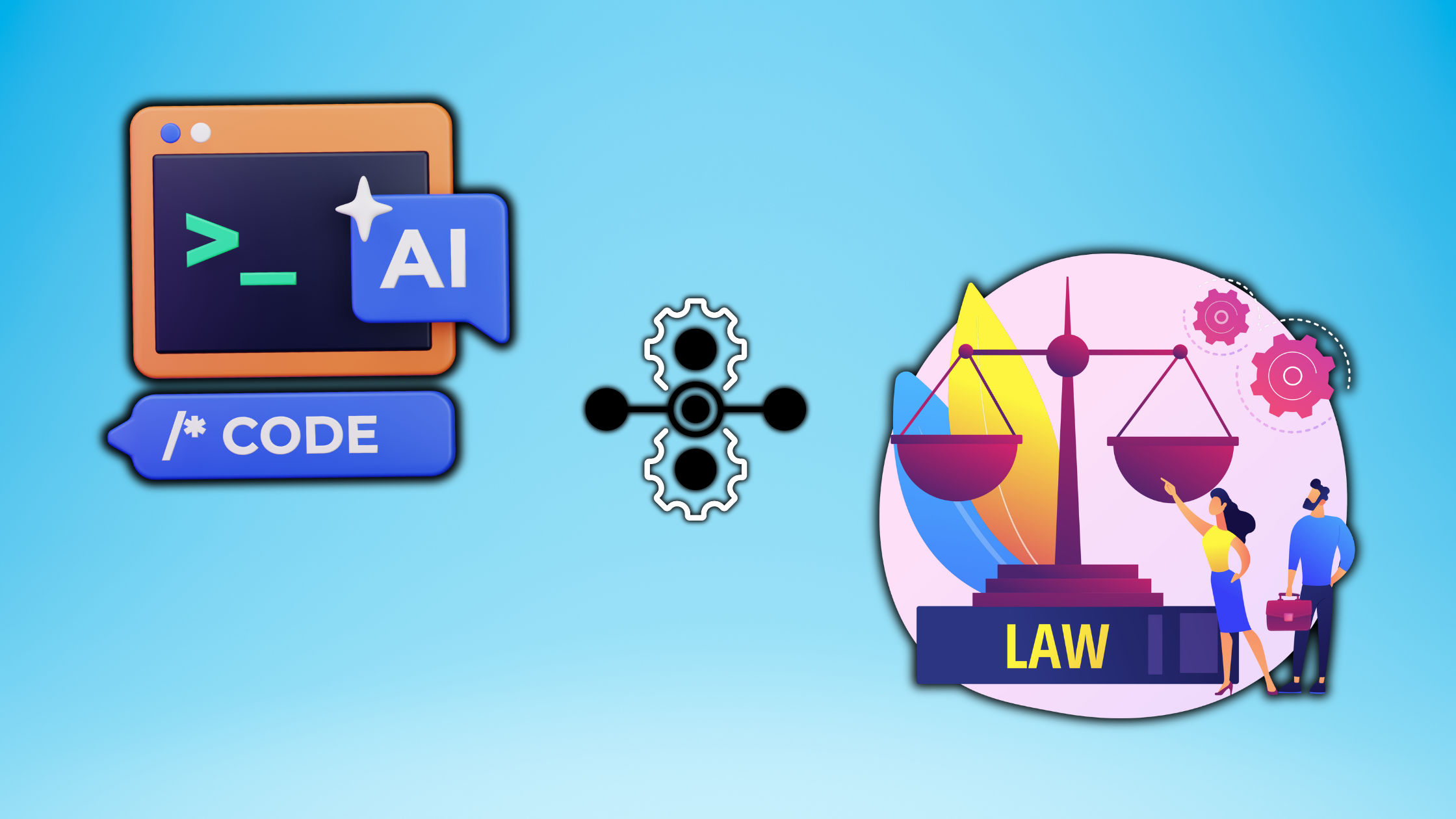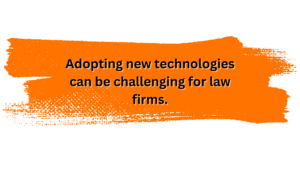The legal sector is undergoing a digital transformation. Technology is reshaping how law firms operate and deliver services. Legal IT services play a pivotal role in this shift. They offer solutions that enhance efficiency, security, and competitiveness.
From cybersecurity to cloud computing, these services are revolutionizing legal practices and paving the way for innovative trends like artificial intelligence (AI) and blockchain in law.
This article explores the current state and future of technology in law. It delves into the benefits and challenges of integrating IT services into legal practices.
Whether you're a law firm decision-maker, a legal practitioner, or an IT professional in the legal industry, this piece offers valuable insights. It guides you on leveraging technology for improved legal service delivery.
The Evolving Role of IT in Legal Practices
The role of IT in legal practices is expanding. It's no longer just about maintaining hardware and software. Legal IT services now encompass data protection, regulatory compliance, and operational efficiency. They also support remote work and digital client engagement.
IT plays a crucial role in legal research and case management. It aids in document review, predictive analytics, and litigation support. As law firms navigate the digital landscape, the demand for specialized legal IT services is rising.
Cybersecurity: A Top Priority for Law Firms
Cybersecurity is a top priority for law firms in an era of data breaches and cyber threats. Legal IT services are crucial in enhancing data protection and client privacy. They implement robust security measures to safeguard sensitive information, including strong data encryption, secure communication channels, and regular IT audits.
Moreover, they ensure compliance with data privacy laws like GDPR. This is crucial in maintaining client trust and avoiding hefty fines. Legal IT services are the first line of defense in law firm cybersecurity.
Streamlining Operations with Managed IT Services
Managed IT services are transforming how law firms operate. They take over the day-to-day IT tasks, allowing legal professionals to focus on their core work. These services include network management, system updates, and IT support. They also offer disaster recovery solutions to ensure business continuity.
By outsourcing IT tasks, law firms can save costs, access expert knowledge, and improve their operational efficiency and scalability.
In short, managed IT services are a game-changer for legal operations.
Cloud Computing: Enhancing Collaboration and Accessibility
Cloud computing is another trend shaping the legal sector. It offers a platform for storing and accessing data from anywhere, anytime. This enhances collaboration among legal teams and supports remote work, a growing trend in the legal industry.
Cloud-based legal software allows for real-time updates and seamless integration. This improves case management and client service delivery.
However, cloud computing also poses data security concerns. Hence, it is crucial to choose a reliable legal IT service provider.
Specialized Legal Software Solutions
The rise of legal tech has led to various specialized software solutions. These tools are designed to meet the unique needs of legal practices.
For instance, case management software helps streamline legal workflows by organizing case files, schedules, and billing in one place.
Then there's e-discovery software. It aids in identifying, collecting, and analyzing electronic data for litigation purposes.
Legal research tools powered by AI and machine learning are also gaining traction. They help lawyers sift through vast amounts of legal data in less time. Legal software solutions are revolutionizing the way law firms operate.
Case Management Efficiency
Case management software is an asset for legal professionals. It automates routine tasks, saving time and reducing errors. It keeps all case-related information in one place, including client details, case files, court dates, and billing information.
Law firms can improve their efficiency and client service delivery by streamlining case management.
AI and Machine Learning in Legal Research
AI and machine learning are revolutionizing legal research. They can analyze vast amounts of data and identify patterns that humans might miss.
For instance, they can predict legal outcomes based on past cases. This aids in decision-making and legal strategy formulation.
AI-powered tools can automate document review, saving time and improving accuracy. In short, AI and machine learning are set to revolutionize legal research.
The Impact of IT on Legal Service Delivery
IT is reshaping the delivery of legal services. It's making them more efficient, accessible, and client-centric. For instance, IT enables remote work, allowing law firms to operate beyond geographical boundaries. IT tools facilitate digital client engagement by providing secure platforms for communication and document exchange.
In essence, IT is transforming the way law firms deliver their services. It's making them more agile, responsive, and competitive.
Remote Work and Digital Client Engagement
The COVID-19 pandemic and overall commuter fatigue accelerated the shift towards remote work in the legal sector. IT tools have made this transition smoother. They enable lawyers to work from anywhere, at any time.
This flexibility can boost productivity and work-life balance. Digital platforms facilitate client-lawyer interactions, providing secure, convenient communication and document exchange channels.
E-Discovery and Litigation Support
E-discovery tools are revolutionizing litigation support. They automate the process of identifying, collecting, and analyzing electronic data.
This can save time and reduce the risk of human error. It can also lead to more accurate and comprehensive evidence collection. In short, e-discovery tools are making litigation more efficient and effective.
Blockchain in Contract Management
Blockchain technology is making inroads into contract management. It enables the creation of smart contracts that self-execute when certain conditions are met.
Blockchain has the potential to revolutionize contract management in the legal sector. It can streamline legal transactions and reduce the need for intermediaries. It can also enhance transparency and trust in contractual dealings.
Preparing for the Future: Training and Adoption
It requires a shift in mindset and work practices. However, the benefits of tech adoption far outweigh the challenges. It can enhance efficiency, competitiveness, and client satisfaction.
To reap these benefits, law firms need to invest in training and education and equip their staff with the skills to use these technologies effectively. They need to foster a culture of innovation and continuous learning. This can facilitate the successful integration of technology into legal practices.
Overcoming Challenges in Tech Adoption
Resistance to adopting new technologies can stem from a need for more understanding or a fear of change. To overcome this resistance, law firms need to communicate the benefits of tech adoption clearly and show how it can make work easier and more efficient.
They also need to provide support during the transition period. This can include training, resources, and ongoing IT support.
The Importance of Ongoing IT Education
Ongoing IT education is crucial in the legal sector. It helps law firms keep up with the rapid pace of technological change. It equips lawyers with the skills to use new technologies effectively. This can enhance their productivity and service delivery.
IT education can help law firms mitigate the risks associated with technology. It can equip them with the knowledge to manage cybersecurity threats and data privacy issues.
Choosing the Right Legal IT Services Provider
Choosing the right IT services provider is crucial for law firms. It can significantly impact their efficiency, security, and competitiveness. The right provider understands the legal sector's unique needs and offers specialized services tailored to these needs.
They also stay abreast of the latest legal technology trends and can guide law firms in effectively adopting them. The right provider will offer robust support and training. This can facilitate the successful integration of technology into legal practices.
Assessing Your Law Firm's IT Needs
Before choosing a provider, law firms need to assess their IT needs. They need to identify the areas where technology can enhance their operations.This can include data management, cybersecurity, case management, and client communication. Based on this assessment, they can choose a provider that offers the right services and solutions.
The Benefits of Outsourcing IT Support Services
Outsourcing IT services can offer several benefits to law firms. It can give them access to expertise and resources they may need to have in-house. It can also save them the cost and time of managing IT operations internally, allowing them to focus on their core legal work.
Furthermore, outsourcing can provide them with scalable IT solutions. These can adapt to their changing needs and growth.
Conclusion: Embracing Technology for a Competitive Edge
Embracing technology is no longer optional for law firms. It is a necessity for staying competitive in the evolving legal landscape. By leveraging legal IT services, law firms can enhance their efficiency, security, and client service. They can also gain a competitive edge in the marketplace.
In conclusion, the future of law lies in technology. Law firms that understand this and adapt accordingly will succeed.
Photo credit: Hire A Geek Online






You must be logged in to post a comment.